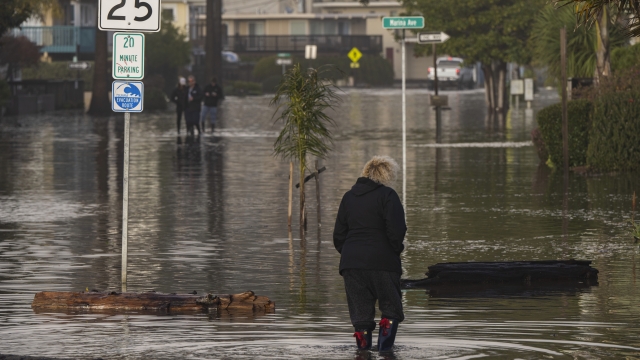Threats brought on by rising sea levels due to climate change are clear: Just a few feet of sea level rise could be enough to put many parts of the U.S. underwater and force a lot of people to relocate.
But what's not clear for many is understanding how this is already affecting people across the country, and it could impact everything, from government policy to insurance rates.
"When we look at the insurance market, we look at the mortgage market, and we look at the broader way that global economies now are pricing physical risk in terms of climate change," said Jesse Keenan, an associate professor of sustainable real estate at Tulane University. "We see this as a cost burden, so if you want to live in a very high-risk area, it increasingly becomes a cost burden."
Keenan says those cost burdens are already being felt by consumers.
"We have to contextualize this within a broader realm of a lack of affordability for housing all throughout the United States," Keenan said. "It's expensive to live in many areas of the United States. Housing is out of reach for a good number of American households. So when you add these additional costs of insurance, mortgage costs, higher rents, all of these things become real economic burdens on people."
Whether they know about these risks or not, people are still moving to some of those areas.
Florida had the fastest growing population of any state in 2022, even as many of the state's population areas are in low-lying places at risk from sea level rise, and the state is in the path of many hurricanes.
A study by the University of Vermont also found many Americans are moving to areas of the West that are particularly prone to wildfires and drought.
While some folks are just starting to consider climate change as a factor in their individual moves, entire communities have already had to relocate. It's leading to government officials forming some policies on the fly. Some of the earliest tests of that have centered around federal or state-recognized tribes.
In 2016, the Obama administration offered nearly $50 million to the tribal nation based on Isle de Jean Charles on the south coast of Louisiana — the first time the U.S. government ever undertook a long-term relocation effort tied to climate change.
It took several years, with the project running into issues caused by a partnership with the state, but by the end of 2022, most residents have been relocated off the island as rising sea levels quickly take it into the ocean.
In 2022, the Department of the Interior planned further in advance, setting up an application process where tribes could apply for funding for relocation efforts.
Not every tribe received funding, but three tribes — the villages of Newtok and Napakiak, Alaska and the Quinault Indian Nation on Washington's Olympic Peninsula — received the largest grants of $25 million each.


